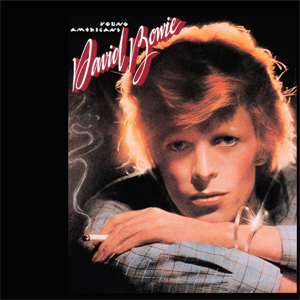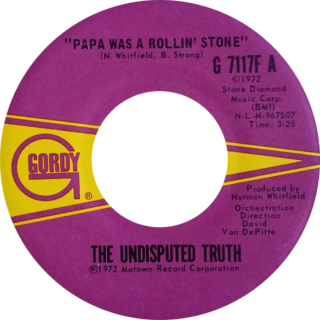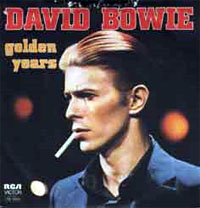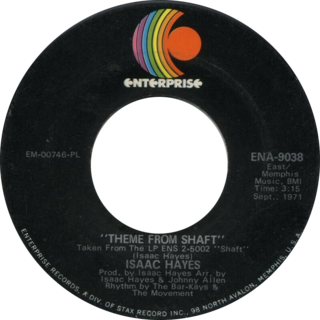Related Research Articles

Funk is a music genre that originated in African-American communities in the mid-1960s when musicians created a rhythmic, danceable new form of music through a mixture of various music genres that were popular among African-Americans in the mid-20th century. It deemphasizes melody and chord progressions and focuses on a strong rhythmic groove of a bassline played by an electric bassist and a drum part played by a percussionist, often at slower tempos than other popular music. Funk typically consists of a complex percussive groove with rhythm instruments playing interlocking grooves that create a "hypnotic" and "danceable" feel. It uses the same richly colored extended chords found in bebop jazz, such as minor chords with added sevenths and elevenths, and dominant seventh chords with altered ninths and thirteenths.
Melvin M. Ragin, known professionally as "Wah Wah Watson," was an American guitarist who was a member of the Funk Brothers, the studio band for Motown Records. He also worked extensively as a session musician in a variety of genres from jazz and pop to R&B.

Jazz fusion is a popular music genre that developed in the late 1960s when musicians combined jazz harmony and improvisation with rock music, funk, and rhythm and blues. Electric guitars, amplifiers, and keyboards that were popular in rock and roll started to be used by jazz musicians, particularly those who had grown up listening to rock and roll.

A wah-wah pedal, or simply wah pedal, is a type of effects pedal designed for electric guitar that alters the timbre of the input signal to create a distinctive sound, mimicking the human voice saying the onomatopoeic name "wah-wah". The pedal sweeps a band-pass filter up and down in frequency to create a spectral glide. The wah-wah effect originated in the 1920s, with trumpet or trombone players finding they could produce an expressive crying tone by moving a mute in, and out of the instrument's bell. This was later simulated with electronic circuitry for the electric guitar when the wah-wah pedal was invented. It is controlled by movement of the player's foot on a rocking pedal connected to a potentiometer. Wah-wah effects may be used without moving the treadle as a fixed filter to alter an instrument’s timbre, or to create a "wacka-wacka" funk-styled rhythm for rhythm guitar playing.
Philadelphia soul, sometimes called Philly soul, the Philadelphia sound, Phillysound, or The Sound of Philadelphia (TSOP), is a genre of late 1960s–1970s soul music characterized by funk influences and lush string and horn arrangements. The genre laid the groundwork for the emergence of disco later in the 1970s by fusing the R&B rhythm sections of the 1960s with the pop vocal tradition and featuring a more pronounced jazz influence in its melodic structures and arrangements. Fred Wesley, trombonist with the J.B.'s and Parliament-Funkadelic, described the Philadelphia soul sound as "putting the bow tie on funk."

Diamond Dogs is the eighth studio album by the English musician David Bowie, released on 24 May 1974 through RCA Records. Bowie produced the album and recorded it in early 1974 in London and the Netherlands, following the disbanding of his backing band the Spiders from Mars and the departure of producer Ken Scott. Bowie played lead guitar on the record in the absence of Mick Ronson. Diamond Dogs featured the return of Tony Visconti, who had not worked with Bowie for four years; the two would collaborate for the rest of the decade. Musically, it was Bowie's final album in the glam rock genre, though some songs were influenced by funk and soul music, which Bowie embraced on his next album, Young Americans (1975).
Symphonic metal is a cross-generic style designation for the symphonic subsets of heavy metal music subgenres. It is used to denote any metal band that makes use of symphonic or orchestral elements. The style features the heavy drums and guitars of metal with different elements of orchestral classical music, such as symphonic instruments, choirs and sometimes a full orchestra, or just keyboard orchestration.

Young Americans is the ninth studio album by the English musician David Bowie, released on 7 March 1975 through RCA Records. A departure from the glam rock style of previous albums, the record showcased Bowie's interest in soul and R&B. Music critics have described the sound as blue-eyed soul; Bowie himself labelled the album's sound "plastic soul".

"Papa Was a Rollin' Stone" is a song originally performed by Motown recording act the Undisputed Truth in 1972, though it became much better known after a Grammy-award winning cover by the Temptations was issued later the same year. This latter version of the song became a number-one hit on the Billboard Hot 100.
Psychedelic soul is a music genre that emerged in the late 1960s and saw Black soul musicians embrace elements of psychedelic rock, including its production techniques, instrumentation, effects units and drug influences. It came to prominence in the late 1960s and continued into the 1970s, playing a major role in the development of funk and disco.

"Golden Years" is a song by the English musician David Bowie, released by RCA Records on 21 November 1975 as the lead single from his tenth studio album Station to Station (1976). Partially written before Bowie began shooting for the film The Man Who Fell to Earth (1976), the song was mostly compiled in the studio and was the first track completed for the album. Co-produced by Bowie and Harry Maslin, recording took place at Cherokee Studios in Los Angeles during September 1975. Due to Bowie's heavy cocaine use, he later recalled remembering almost nothing of Station to Station's production.
Afro rock is a style of rock music with African influences. Afro rock is a dynamic interplay between Western rock music and African musical elements such as rhythm, melodies and instrumentation. Afro rock bands and artists in the late 1960s and early 1970s included Osibisa, Assagai and Lafayette Afro Rock Band.

"1984" is a song by the English musician David Bowie, from his 1974 album Diamond Dogs, released as a single in the United States and Japan. Written in 1973, it was inspired by George Orwell's Nineteen Eighty-Four and, like much of its parent album, originally intended for a stage musical based on the novel, which was never produced because permission was refused by Orwell's widow Sonia.
Funk rock is a fusion genre that mixes elements of funk and rock. James Brown and others declared that Little Richard and his mid-1950s road band, the Upsetters, were the first to put the funk in the rock and roll beat, with a biographer stating that their music "spark[ed] the musical transition from fifties rock and roll to sixties funk".

"Stay" is a song by the English musician David Bowie, released on his 1976 album Station to Station. The song was recorded in late 1975 at Cherokee Studios in Los Angeles. Co-produced by Bowie and Harry Maslin, the recording featured guitarists Carlos Alomar and Earl Slick, bassist George Murray, drummer Dennis Davis, pianist Roy Bittan and Warren Peace on percussion. The track features prominent dual guitar work from Slick and Alomar, who mostly composed it in the studio. Based on the chord structure of "John, I'm Only Dancing (Again)", a funk reworking of "John, I'm Only Dancing" (1972), "Stay" emulates funk rock, soul and hard rock. The song's lyrics are abstract and relate to love.
Chamber pop is a music genre that combines rock music with the intricate use of strings, horns, piano, and vocal harmonies, and other components drawn from the orchestral and lounge pop of the 1960s, with an emphasis on melody and texture.

"Theme from Shaft", written and recorded by Isaac Hayes in 1971, is the soul and funk-styled theme song to the Metro-Goldwyn-Mayer film Shaft. The theme was released as a single two months after the movie's soundtrack by Stax Records' Enterprise label. "Theme from Shaft" went to number two on the Billboard Soul Singles chart and to number one on the Billboard Hot 100 in the United States in November 1971, and number one in Canada in December. The song was also well received by adult audiences, reaching number six on Billboard's Easy Listening chart and number four in Canada. The song is considered by some to be one of the first disco songs.

"Cloud Nine" is a 1968 hit single recorded by The Temptations for the Motown label. It was the first of their singles to feature Dennis Edwards instead of David Ruffin in the lineup, was the first of producer Norman Whitfield's psychedelic soul tracks, and won Motown its first Grammy Award. The song was written by Whitfield and former Motown artist Barrett Strong.
Boogie is a rhythm and blues genre of electronic dance music with close ties to the post-disco style, that first emerged in the United States during the late 1970s to mid-1980s. The sound of boogie is defined by bridging acoustic and electronic musical instruments with emphasis on vocals and miscellaneous effects. It later evolved into electro and house music.

Psychedelic funk is a music genre that combines funk music with elements of psychedelic rock. It was pioneered in the late 1960s and early 1970s by American acts like Sly and the Family Stone, Jimi Hendrix, and the Parliament-Funkadelic collective. It would influence subsequent styles including '70s jazz fusion and the '90s West Coast hip hop style G-funk.
References
- 1 2 Foley, Mark (December 23, 2014). "Musical Space: Cinematic Soul". KMUW . Retrieved September 17, 2018.
- ↑ Gulla, Bob (7 September 2018). Icons of R&B and Soul: Smokey Robinson and the Miracles ; The Temptations ; The Supremes ; Stevie Wonder. Greenwood Publishing Group. ISBN 9780313340444 – via Google Books.
- ↑ Betts, Graham (2014). Motown Encyclopedia. AC Publishing. p. 373. ISBN 978-1-311-44154-6.
- ↑ Doggett, Peter (2011). The Man Who Sold The World: David Bowie And The 1970s. Random House. p. 251. ISBN 978-1-409-04139-9.
- ↑ Sampling Media. Oxford University Press. 2014. p. 23. ISBN 978-0-199-94933-5.
- ↑ "Superbad Funk and Cinematic Soul". AllMusic. Retrieved 17 September 2018.
- ↑ "You Gotta Put Me On: For the Artists Who Haven't Quite Reached Mainstream Success but Are Killing the Game". The Root. June 29, 2018. Retrieved September 17, 2018.
- ↑ "Cinematic Soul From Ikebe Shakedown Premieres On Big Takeover + Tour Dates". Broadway World. September 22, 2017. Retrieved September 17, 2018.
- ↑ "Ikebe Shakedown: The Way Home". All About Jazz. November 23, 2017. Retrieved September 17, 2018.